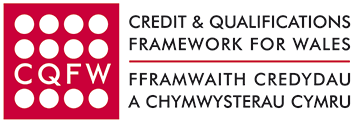| 1. |
Understand what makes up a balanced diet. |
|
| 1.1 | Define the main food groups.
| | 1.2 | Identify sources of essential nutrients.
| | 1.3 | Explain the role of essential nutrients for health.
| | 1.4 | Evaluate the impact of poor diet on health and wellbeing.
| | 1.5 | Explain what adaptations to a balanced diet may be required for different groups. |
|
| 2. |
Understand nutritional guidelines. |
|
| 2.1 | Summarise current national nutritional guidelines for a balanced diet.
| | 2.2 | Explain how to access additional support and information relating to nutrition and hydration. |
|
| 3. |
Be able to promote nutrition in health and social care settings. |
|
| 3.1 | Explain the importance of a balanced diet.
| | 3.2 | Demonstrate how to plan an appropriate balanced diet with an individual.
| | 3.3 | Demonstrate how to promote an appropriate balanced diet with an individual.
| | 3.4 | Evaluate the effectiveness of different ways of promoting healthy eating. |
|
| 4. |
Be able to promote hydration in health and social care settings. |
|
| 4.1 | Explain the importance of hydration.
| | 4.2 | Describe signs of dehydration.
| | 4.3 | Demonstrate ways to support and promote hydration with individuals.
| | 4.4 | Evaluate the effectiveness of different ways of supporting and promoting hydration. |
|
| 5. |
Understand how to prevent malnutrition in health and social care settings. |
|
| 5.1 | Describe the factors that may affect nutritional intake.
| | 5.2 | Describe the risk factors that may lead to malnutrition.
| | 5.3 | Describe the signs of malnutrition.
| | 5.4 | Explain ways of ensuring foods and drinks have increased nutritional density through fortification.
| | 5.5 | Describe the appropriate use of nutritional supplements. |
|
| 6. |
Be able to carry out nutritional screening in health and social care settings. |
|
| 6.1 | Describe the purpose of nutritional screening.
| | 6.2 | Carry out nutritional screening.
| | 6.3 | Implement the actions identified by nutritional screening.
| | 6.4 | Monitor, record and review the actions taken following nutritional screening. |
|
| 7. |
Be able to monitor and record nutrition and hydration needs with individuals in health and social care settings. |
|
| 7.1 | Describe the roles and responsibilities of others in assessing and managing the nutritional and hydration needs with individuals.
| | 7.2 | Explain ways in which nutrition and hydration can be monitored.
| | 7.3 | Monitor and record nutrition and hydration of an individual in accordance with their plan of care. |
|
| 8. |
Understand factors that affect special dietary requirements in health and social care settings. |
|
| 8.1 | Describe factors that may promote healthy eating in different groups.
| | 8.2 | Describe factors that may create barriers to healthy eating for different groups.
| | 8.3 | Explain why individuals may have special dietary requirements.
| | 8.4 | Explain why it is important for individuals with special dietary requirements to follow special diets. |
|
